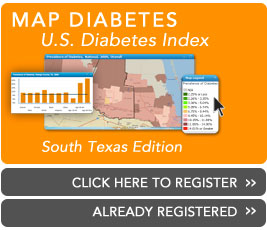Posted by Diabetes South Texas Staff
Clinical Trial News
Wednesday, November 20th, 2013
Springer: December 2013
Aims/hypothesis
Roux-en-Y gastric bypass (RYGB) improves glycaemic control in part by increasing postprandial insulin secretion through exaggerated glucagon-like peptide (GLP)-1 release. However, it is unknown whether islet cell responsiveness to i.v. glucose, non-glucose (arginine) and incretin hormones, including GLP-1, is altered.
Methods
Eleven severely obese glucose-tolerant individuals underwent three hyperglycaemic clamps with arginine bolus and co-infusion of either GLP-1, glucose-dependent insulinotropic polypeptide (GIP) or saline before, and at 1 week and 3 months after RYGB. In addition, an OGTT was performed before and 3 months after surgery. Read More
Posted by Diabetes South Texas Staff
Clinical Trial News
Wednesday, November 20th, 2013
Springer: December 2013
Aims/hypothesis
Insulin therapy in patients with type 2 diabetes mellitus is accompanied by weight gain characterised by an increase in abdominal fat mass. The expansion of adipose tissue mass is generally paralleled by profound morphological and inflammatory changes. We hypothesised that the insulin-associated increase in fat mass would also result in changes in the morphology of human subcutaneous adipose tissue and in increased inflammation, especially when weight gain was excessive.
Methods
We investigated the effects of weight gain on adipocyte size, macrophage influx, and mRNA expression and protein levels of key inflammatory markers within the adipose tissue in patients with type 2 diabetes mellitus before and 6 months after starting insulin therapy. Read More
Posted by Diabetes South Texas Staff
Clinical Trial News
Wednesday, November 20th, 2013
Nejm: 11/9/13
Although inhibitors of the renin–angiotensin–aldosterone system can slow the progression of diabetic kidney disease, the residual risk is high. Whether nuclear 1 factor (erythroid-derived 2)–related factor 2 activators further reduce this risk is unknown.
Full Text of Background…
METHODS
We randomly assigned 2185 patients with type 2 diabetes mellitus and stage 4 chronic kidney disease (estimated glomerular filtration rate [GFR], 15 to <30 ml per minute per 1.73 m2 of body-surface area) to bardoxolone methyl, at a daily dose of 20 mg, or placebo. The primary composite outcome was end-stage renal disease (ESRD) or death from cardiovascular causes. Read more
Posted by Diabetes South Texas Staff
Clinical Trial News
Wednesday, November 20th, 2013
Diabetes Spectrum: November 2013
Objective. This study compared the effectiveness of Conversation Map™ (CM) education tools versus regular care of adults with type 2 diabetes.
Methods. Participants from Spain and Germany were randomized to either four CM education sessions or regular care. Data were collected at baseline (visit 1), immediately post-education (visit 2), and 6 months later (visit 3). The primary objective was to compare diabetes knowledge between education groups at visit 3, using the Audit of Diabetes Knowledge (ADKnowl) questionnaire (score range 0–100). Read More
Posted by Diabetes South Texas Staff
News
Wednesday, November 20th, 2013
Springer: December 2013
Aims/hypothesis
We tested the hypothesis that age younger than 65 years at type 2 diabetes diagnosis is associated with worse subsequent glycaemic control.
Methods
A cross-sectional analysis of data from participants in the 2005–2010 National Health and Nutrition Examination Survey was performed. For adults with self-reported diabetes, we dichotomised age at diabetes diagnosis as younger (<65 years) vs older (≥65 years). The primary outcome of interest was HbA1c >9.0% (75 mmol/mol). Secondary outcomes were HbA1c >8.0% (64 mmol/mol) and >7.0% (53 mmol/mol). We used multivariable logistic regression for analysis. Read more
Posted by Diabetes South Texas Staff
News
Wednesday, November 20th, 2013
NIH: November 14, 2013
Diabetes does not strike a person alone. It strikes families and communities. It strikes our nation and the world. During today’s World Diabetes Day and National Diabetes Month this November, we at the National Institute of Diabetes and Digestive and Kidney Diseases, part of the National Institutes of Health, renew our efforts to prevent, manage and one day cure diabetes. As well, we encourage families to take steps to improve their health and work together to fight diabetes and its serious and sometimes fatal consequences.
Diabetes affects nearly 26 million Americans, and an estimated 79 million people are at risk for developing the disease. Worldwide, diabetes is on the rise, especially in Asia and the Middle East. For people living with diabetes or at risk for type 2 diabetes, family support is critical to staying healthy. NIDDK has taken important steps to curtail this epidemic, from funding research on diabetes and its complications to providing help through education. Read More
Posted by Diabetes South Texas Staff
News
Wednesday, November 20th, 2013
Informa Healthcare: November 13, 2013
Insulin and incretin agents (dipeptidyl peptidase-4 inhibitors [DPP4is] and glucagon-like peptide-1 receptor agonists [GLP1 RAs]) are second-line treatment options in patients with type 2 diabetes (T2D) not achieving glycemic targets with metformin. Combinations of insulin with incretin agents have been explored in randomized controlled trials (RCTs) and retrospective studies. However, the optimal approach is still elusive; numerous combination regimens can be envisioned, differing in composition and in order of addition. Read More



























